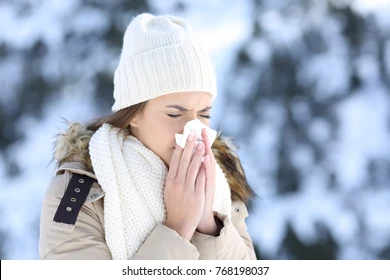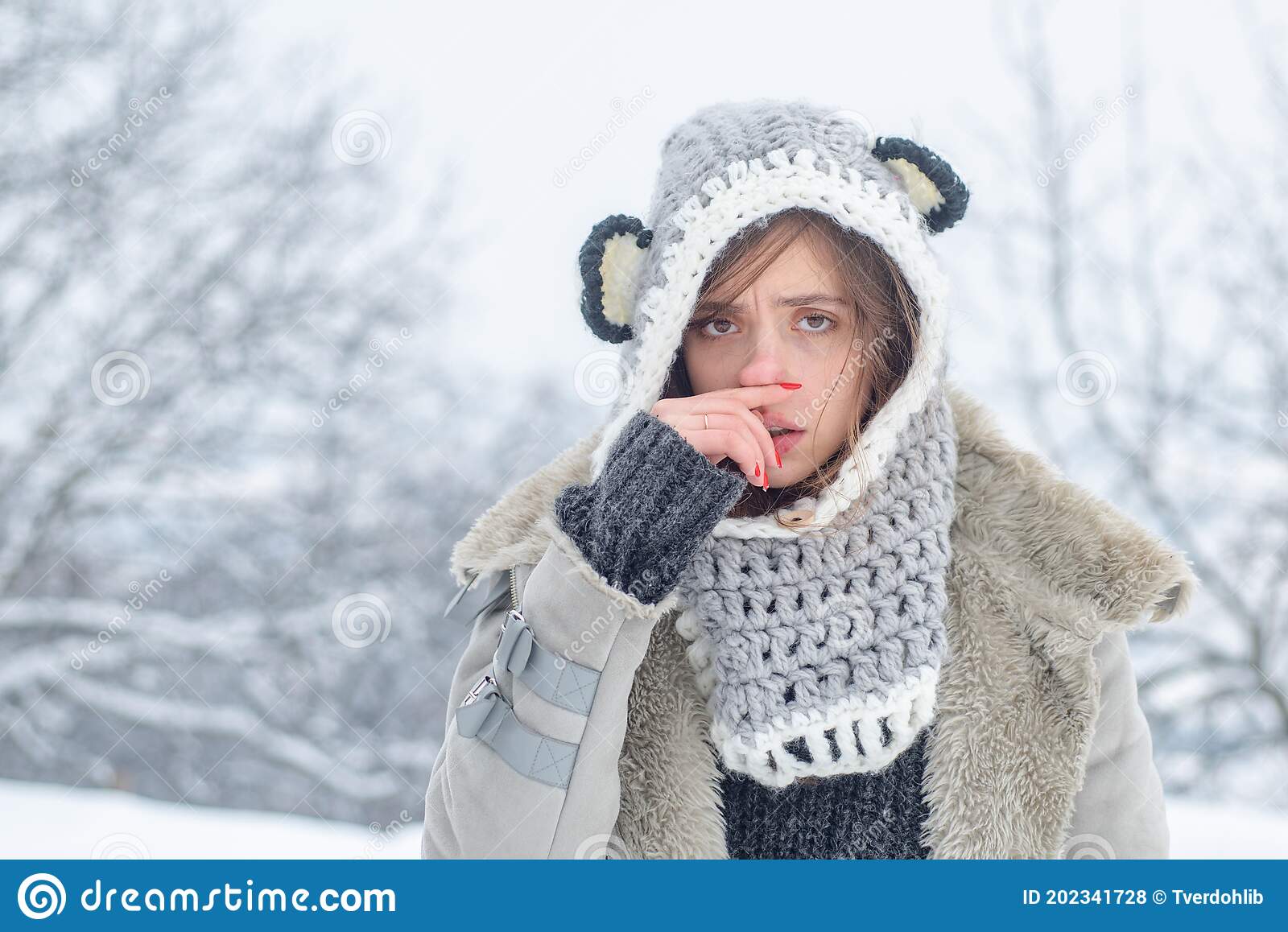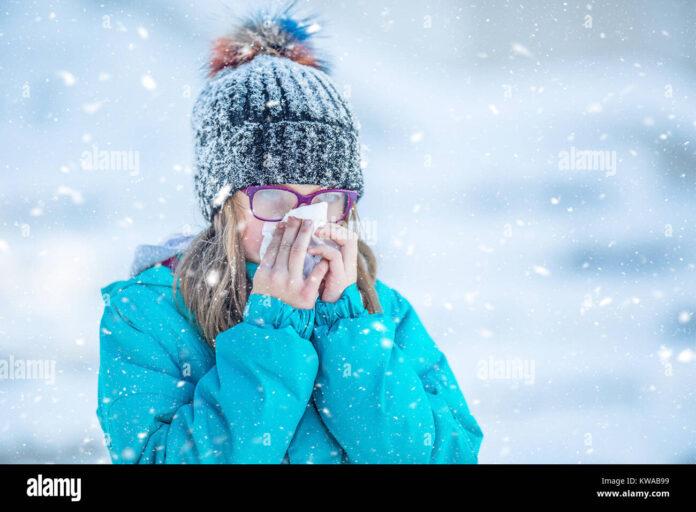Winter can be a great time of year, but it also brings with it an increased risk of getting sick. Have you ever wondered why that is? Well, it turns out that your nose plays an important role in winter illnesses. In this blog post, we will take a look at why you get sick in the winter and how to keep your nose healthy during colder months. By the end of this post, you should have a better understanding of why you get sick in the winter and how to prevent it.
What Makes You Get Sick In The Winter?
Cold weather can be a drag, but it’s not the only thing that can make you sick in the winter. During cold winter months, the air becomes drier and a drying out of mucous membranes can make it easier for pathogens to invade. When your nose gets runny or stuffy (rhinorrhea or congestion), that indicates that the virus has already begun invading your body. Colds and flu are most common during the winter as your body is more susceptible to changes in temperature. Keeping your nose hydrated can help decrease your chances of catching a virus.
But don’t worry – there are also steps you can take to stay healthy during these cold months. Make sure to wash your hands regularly, cover your mouth and nose when sneezing or coughing, and avoid contact with those who are already sick. And if you do catch a virus, take care of yourself by drinking plenty of fluids and taking antibiotics as prescribed by your doctor. Thanks for reading!

The Role Of Your Nose In Winter Illness
It is true that the nose plays a significant role in the body’s defense against illness. However, blaming your nose for getting sick in the winter may not be entirely accurate. Here’s why:
- The nose is equipped with tiny hair-like structures called cilia, which help to filter out bacteria and other particles that we inhale. These cilia work in conjunction with mucus, which traps and removes foreign substances from the body.
- Cold and flu viruses are primarily spread through respiratory droplets that are produced when an infected person talks, coughs, or sneezes. These droplets can enter the body through the nose, mouth, or eyes.
- The low humidity levels that are common in the winter can dry out the mucous membranes in the nose, making it easier for viruses to enter the body and cause infection. However, it is not the nose itself that is to blame for getting sick, but rather the conditions that make it easier for viruses to enter the body.
- There are several other factors that can contribute to the increased incidence of illness in the winter.
Here are a few possible explanations:
- Cold and flu viruses thrive in cold, dry air. The low humidity levels that are common in the winter can dry out the mucous membranes in the nose, making it easier for viruses to enter the body and cause infection.
- People tend to spend more time indoors during the winter, which can lead to the transmission of respiratory viruses. When people are cooped up inside, it is easier for germs to spread from person to person, especially in close quarters like classrooms, offices, or homes.
- The winter months also coincide with the peak of flu season, which can contribute to the increased incidence of illness.
- A drop in vitamin D levels may also play a role in winter illness. Vitamin D, which is produced by the body when the skin is exposed to sunlight, is important for maintaining a healthy immune system. With shorter days and less sunlight in the winter, vitamin D levels may drop, making it easier for viruses to take hold.
Understanding The Role Of Mucus In Winter Disease
During the winter, it’s important to keep your nose healthy in order to avoid getting sick. Mucus is a sticky fluid that plays an important role in trapping cold viruses and keeping them from entering our lungs. Cold temperatures change the consistency of mucus, making it easier for viruses to penetrate our body. Dry air also strips away our body’s natural defenses against germs, making us more susceptible to getting sick. Here are a few tips for keeping your nose healthy during cold weather:.
1. Make sure to humidify your air with a humidifier every day if you live in a dry climate. This will help to keep your nasal passages moist and infection-free.
2. Drink plenty of fluids – both water and other drinks – during cold weather to stay hydrated and help soften mucus so that viruses can’t easily enter our bodies.
3. Wash your hands often – especially before you eat – to reduce the risk of picking up airborne viruses. Germs can spread quickly when we’re ill, so taking steps to protect ourselves is essential!
4. Avoid alcohol, smoking, and other irritants that can weaken the mucus membranes in our nose. These things can make it easier for viruses to enter our body and cause illness.
5. Stay close contact with family members and friends during cold season – they may be more likely than you think to catch a cold! And finally, make sure you’re taking adequate vitamin C supplements during the winter months as this helps boost the immune system.

How To Keep Your Nose Healthy During Colder Months
The winter months are notoriously cold and dry, which can affect your nose in a number of ways. In this section, we will discuss the common cold, how the cold weather impacts your nose, and some tips for keeping your nose healthy during these colder months.
People tend to get sick more often during the winter because of two reasons: 1) It’s harder to breathe due to the colder air and tighter lungs; and 2) The common cold is caused by viruses that thrive in cooler environments. When you get sick with a virus, it takes up residence in your nose – which is why people tend to get sick more often in the winter.
As mentioned above, the cold weather can make it very difficult to breathe. This is because warm air expands when it’s inhaled and this causes obstruction of the airways. Additionally, when it’s cold outside your nasal passages are narrower than they would be at warmer temperatures, which makes breathing even more difficult. To combat this issue, make sure to take regular breaks throughout the day so you can catch your breath and avoid becoming congested.
Another problem that arises from colder temperatures is dryness of the nasal passage tissues. When these tissues are dried out they become more susceptible to infection – making nasal congestion a common symptom of the common cold. To prevent this from happening, drink plenty of fluids (both liquid and solid) throughout the day and avoid drinking alcohol or caffeine late at night when you’re most likely to be congested (these beverages dehydrate you). Additionally, keep a humidifier in your home if conditions become drier than usual – this will help moisturize dry nasal passages.
In addition to taking appropriate steps for staying healthy during colder months- such as drinking lots of fluids and avoiding mucus- there are some other things that you can do too protect yourself against getting sick: Nasal irrigation using saline solution (a natural anti-inflammatory), using over-the-counter decongestants such as pseudoephedrine or phenylephrine (which work by constricting blood vessels), wearing a surgical mask while exercising outdoors if there’s potential for exposure to respiratory droplets (elderly adults may also require an influenza vaccine), washing hands regularly with soap and water or using alcohol hand sanitizers containing ethanol (ethanol kills many types of bacteria but not viruses), avoiding close contact with people who are Sick or have recently been Sick (including touching noses without washing hands first), etc… While all these measures won’t cure an infection completely.
To Conclude
Winter can be a difficult time of year for your health. Knowing how bacteria and viruses can make you ill, as well as how to keep your nose healthy during colder months, are both important steps in staying healthy. Your nose plays an important role in filtering out harmful germs and keeping you from getting sick. By keeping it clean and moisturized, you can reduce the chances of catching a cold or other illnesses during the winter. Therefore, take care of your nose this winter – it is one of the best ways to stay healthy!













[…] Ancient viruses can provide us with a unique insight into our past and the potential to better prepare us for the future. But how do we bring these ancient viruses back to life? In this blog post, we will explore what ancient viruses exist, how to bring them back to life, and what the implications of reawakening ancient viruses are. By the end of this post, you should have a better understanding of the process and potential of bringing ancient viruses back to life. […]